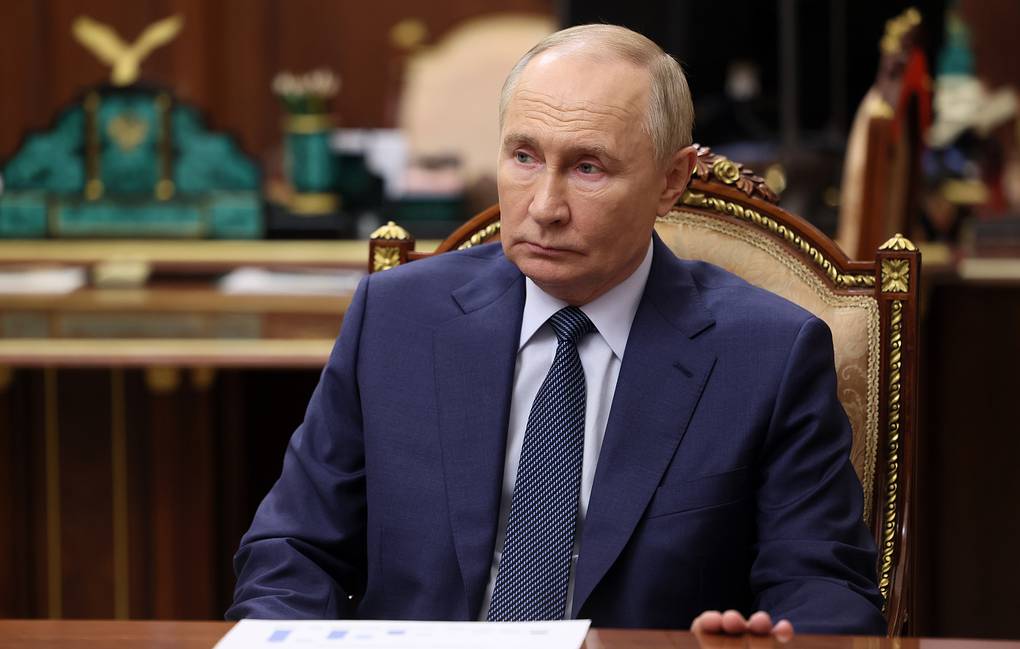

President Vladimir Putin of Russia and President Masoud Pezeshkian of Iran will hold talks at the Kremlin on Friday and sign the Treaty on Comprehensive Strategic Partnership.
The meeting’s agenda includes global and regional issues of mutual interest, including developments in the Middle East.
The parties will also discuss the situation in the South Caucasus and the state of affairs around Iran’s nuclear program.
The bilateral agenda includes ways to expand trade, investment, transport, logistics and humanitarian cooperation.
Putin and Pezeshkian are supposed to make statements to the media after the talks.
New level of relations
The treaty is designed to bring Russia-Iran relations to a new level, cementing their status as strategic partners.
According to officials from both counties, the document will cover all areas, including defense, the fight against terrorism, the energy sector, finances, transport, industries, agriculture, culture, science and technology.
Russia and Iran are currently guided by the 2001 Treaty on the Foundations of Relations and Principles of Cooperation. It was concluded for ten years and automatically renewed for subsequent five-year periods.
The new document will be concluded for 20 years.
Professor Ruhollah Modabber, Iranian political scientist and the country’s leading Russia expert, told TASS that the new treaty would not only boost cooperation between the two countries but would also allow them to better resist US sanctions.
The document also contains provisions on respect for each other’s territorial integrity.
According to the Kremlin, the treaty is in line with aspirations of both Moscow and Tehran and is not directed against the interests of other countries.
Iranian Foreign Minister Abbas Araghchi noted that the treaty did not provide for the establishment of a defense alliance.
Cooperation across all areas
The Kremlin pointed out that Russia-Iran relations "are on the rise," progressing based on the principles of mutual respect and the consideration of each other’s interests.
The parties maintain active dialogue via all channels, including intergovernmental, interparliamentary, inter-agency and inter-regional ones. In November, Russia’s prime minister made a visit to Iran, the first in recent years.
Both countries give high priority to the development of trade and economic ties.
A Russian-Iranian permanent commission on trade and economic cooperation operates effectively.
Bilateral trade rose by 15.5% to $3.77 bln between January and October 2024.
The share of national currencies in mutual payments has exceeded 96%.
The parties work on a number of major joint projects, primarily in the fields of transport and energy.
In particular, the first power unit of the Bushehr Nuclear Power Plant in Iran is in operation, and work is underway to construct the second and third units.
The two countries also seek to boost humanitarian ties.
The Days of Russian Culture are expected to take place in Iran this year.
Efforts continue to establish a Russian Cultural Center in Tehran.
The number of Iranian students enrolled in Russian universities has passed 9,000.
"Close coordination between Russia and Iran on the international stage is based on common approaches, including commitment to building a just multipolar world order based on universally recognized principles of international law, equal and indivisible security, mutually beneficial and equitable cooperation between countries, the desire to pursue an independent foreign policy and determination to resist external pressure and the practice of illegitimate sanctions," the Russian presidential press service stated.
Previous communication
This will be the third meeting between Putin and Pezeshkian.
The first two took place on the sidelines of an international forum in Turkmenistan and the BRICS summit in the Russian city of Kazan in October 2024.
Besides, Putin and Pezeshkian held two phone calls in 2024.












